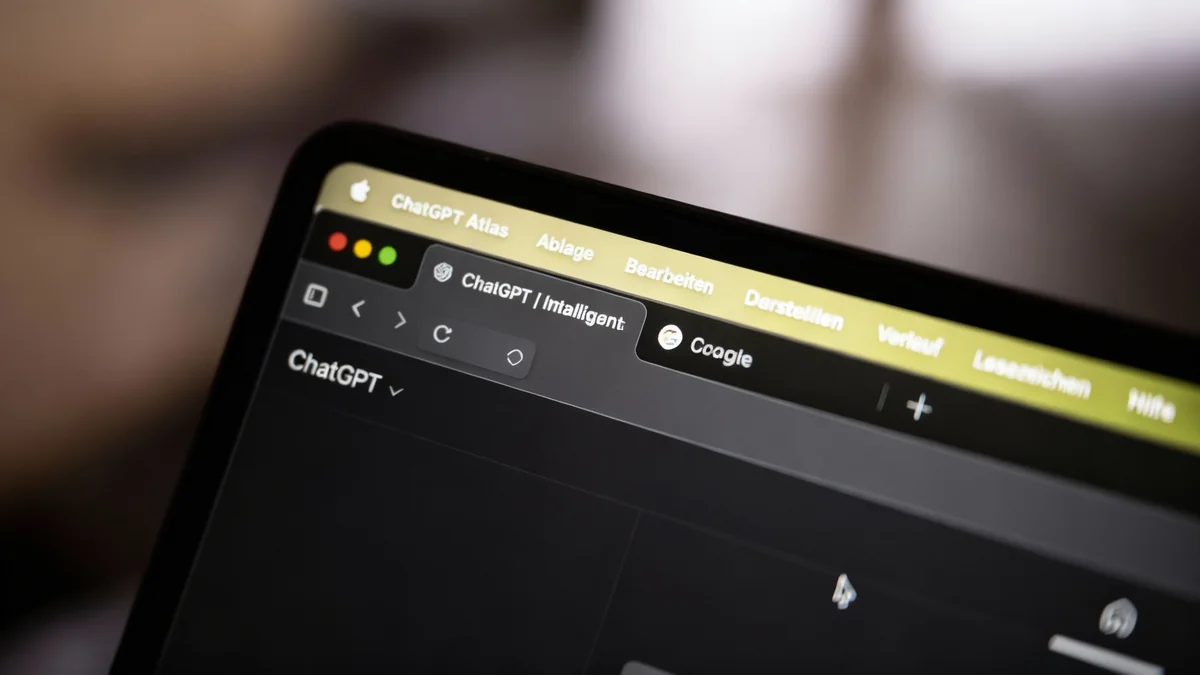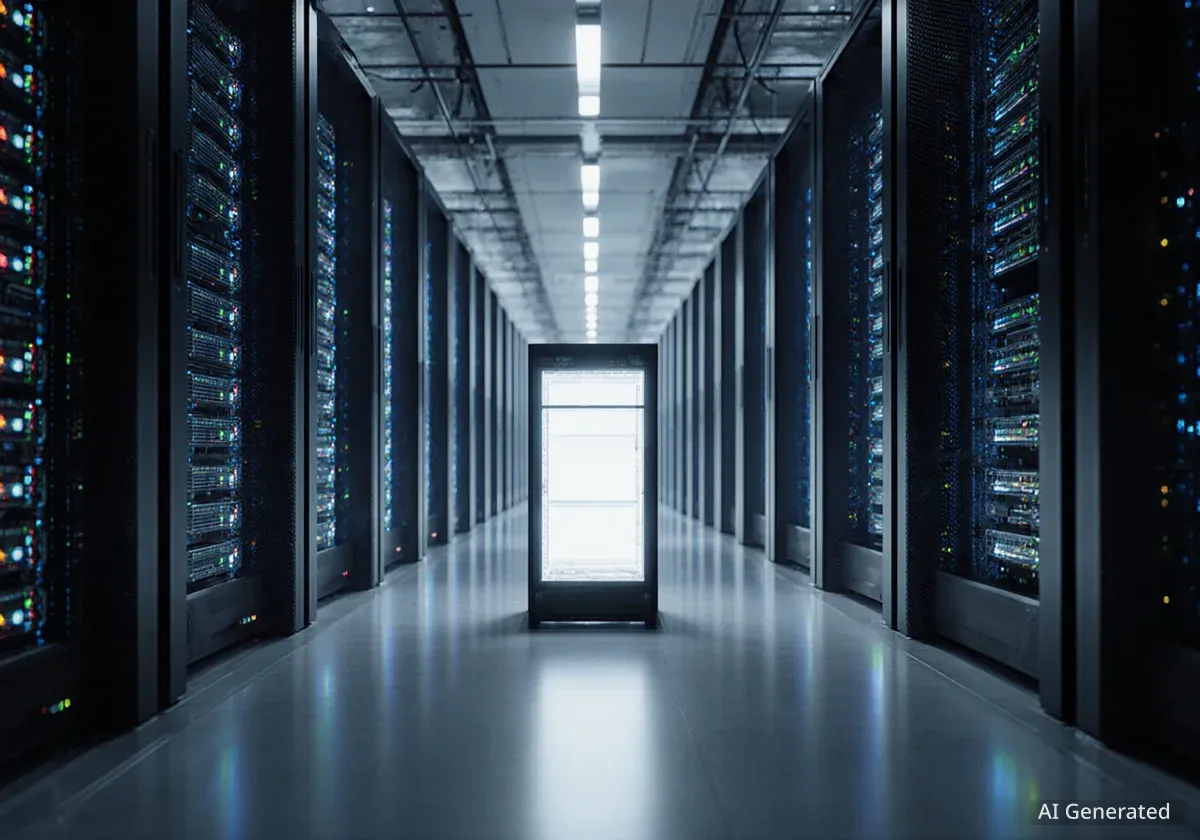OpenAI has entered the web browser market with the release of ChatGPT Atlas, a new desktop application designed to integrate its popular AI chatbot directly into the user's online experience. The move represents a significant challenge to Google's long-standing dominance in how people access and interact with the internet.
The new browser places artificial intelligence at the forefront of web navigation, aiming to shift user behavior away from traditional search engine link lists and towards a more conversational, task-oriented interface. With ChatGPT's user base already exceeding 800 million weekly users, this launch marks a pivotal moment in the competition for the future of the web.
Key Takeaways
- OpenAI has released ChatGPT Atlas, a new AI-integrated desktop web browser.
- The browser directly competes with Google Chrome, which holds nearly 72% of the market share.
- Atlas centers the user experience around the ChatGPT assistant for search, summarization, and task automation.
- The launch reflects a broader industry trend of moving from link-based search to AI-driven information discovery.
OpenAI Enters the Browser Market
On Tuesday, OpenAI officially unveiled its new product, ChatGPT Atlas. This browser is not merely an extension of the existing chatbot but a standalone application built to serve as the primary gateway to the internet for its users. The company's strategy appears to be a direct attempt to capture the territory that Google has controlled for over two decades.
By positioning ChatGPT as the central point of interaction, OpenAI is betting that users are ready for a fundamental change in how they find information and complete tasks online. The browser's design prioritizes AI assistance over the traditional search bar and results page model.
"Your browser is where all of your work, tools, and context come together," OpenAI CEO Sam Altman stated in a blog post announcing the launch. "A browser built with ChatGPT takes us closer to a true super-assistant that understands your world and helps you achieve your goals."
This move follows other AI-native browsers, such as Perplexity's Comet, but OpenAI's massive scale and brand recognition make Atlas the most significant threat to the established order to date. The success of Atlas could accelerate the transition away from the familiar "blue links" of search engines.
A Look Inside ChatGPT Atlas
Upon opening the Atlas browser, users are greeted not by a Google search bar, but by ChatGPT's interface. It prompts users with suggestions for research topics or tasks that its AI agents can perform, such as planning a trip or organizing information.
The integration of AI is seamless and multifaceted. A dedicated button can summon ChatGPT into a sidebar, allowing users to ask questions about the current webpage or request summaries without leaving the page. For instance, a user could highlight a technical term in an article and ask the AI to explain it in simple terms.
Key features of the ChatGPT Atlas browser include:
- AI-First Interface: The primary search and navigation tool is the ChatGPT chatbot.
- Contextual Sidebar: An integrated AI assistant can summarize content, answer questions, and interact with the current webpage.
- Agent Mode: The browser includes AI agents capable of performing multi-step tasks on behalf of the user, such as finding a local business and attempting to book a reservation.
- Proactive Suggestions: The browser offers ideas for tasks and research based on user context.
During a demonstration, the browser's agent mode was asked to find a bar in a specific New York City neighborhood with certain criteria and then book a table. The AI identified a suitable location and proceeded to ask for a reservation time, showcasing its ability to handle complex, real-world requests.
Google's Position and Response
Google is not standing still in the face of this new competition. The company has been gradually integrating its own AI, Gemini, into its core products, including the Chrome browser. Google's search results now often feature AI-generated summaries at the top, and the Gemini assistant is capable of summarizing web pages within Chrome.
Market Dominance
Google Chrome currently accounts for nearly 72% of all web browser traffic, according to data from analytics platform Statcounter Global Stats. This commanding market share has been a cornerstone of Google's business for years.
However, OpenAI's approach with Atlas is fundamentally different. While Google is adding AI features to its existing browser, OpenAI has built a browser around its AI. This distinction could be crucial in attracting users who are looking for a completely new way to browse.
Recent data suggests a potential shift in consumer habits. A study from Pew Research indicated that users are less inclined to click on traditional links when AI summaries are available. This trend points to a growing comfort with receiving direct answers from AI rather than sifting through source websites.
The Future of Web Navigation
The launch of Atlas comes at a time of intense scrutiny for Google. The role of AI in search was a significant theme in the U.S. Justice Department's recent antitrust case against the company, which examined its dominance in the search market.
Antitrust and AI
In the recent landmark antitrust case against Google, Judge Amit Mehta's decision highlighted the importance of competition in the emerging generative AI space. The court filings noted that ensuring Google's search dominance does not extend into AI was a key consideration, underscoring the high stakes of the current technological shift.
While it is too early to predict the long-term success of ChatGPT Atlas, its arrival solidifies a new front in the battle for technological supremacy. OpenAI's ambitions clearly extend beyond chatbots and into the fundamental infrastructure of how people use the internet, from search to browsers and eventually to hardware.
This strategy mirrors the playbook Google used to build its empire. Whether consumers are ready to abandon the familiar comfort of Chrome for an AI-centric alternative remains to be seen, but the competition is set to redefine our daily digital lives.





